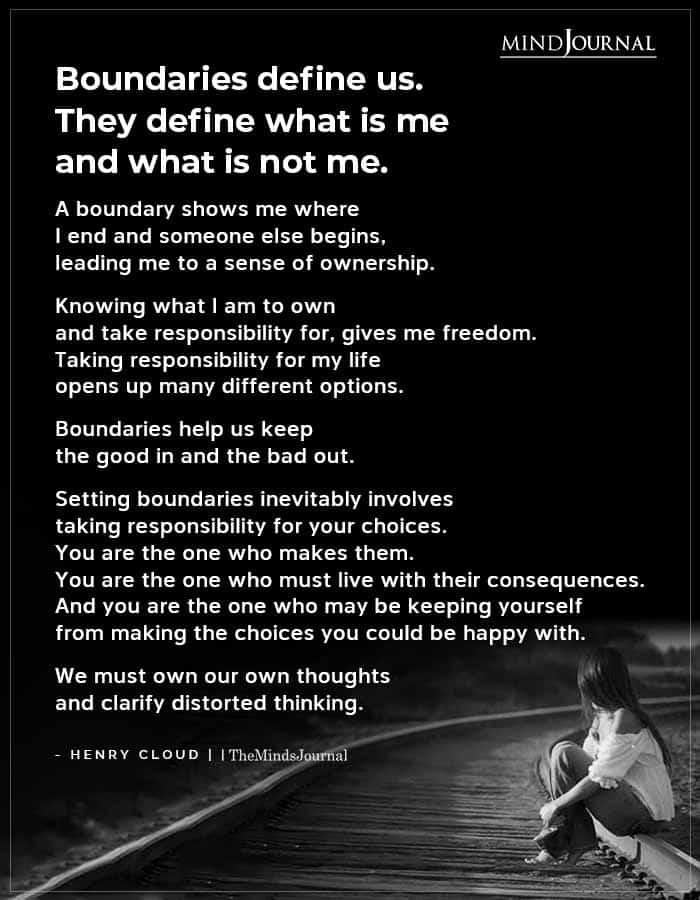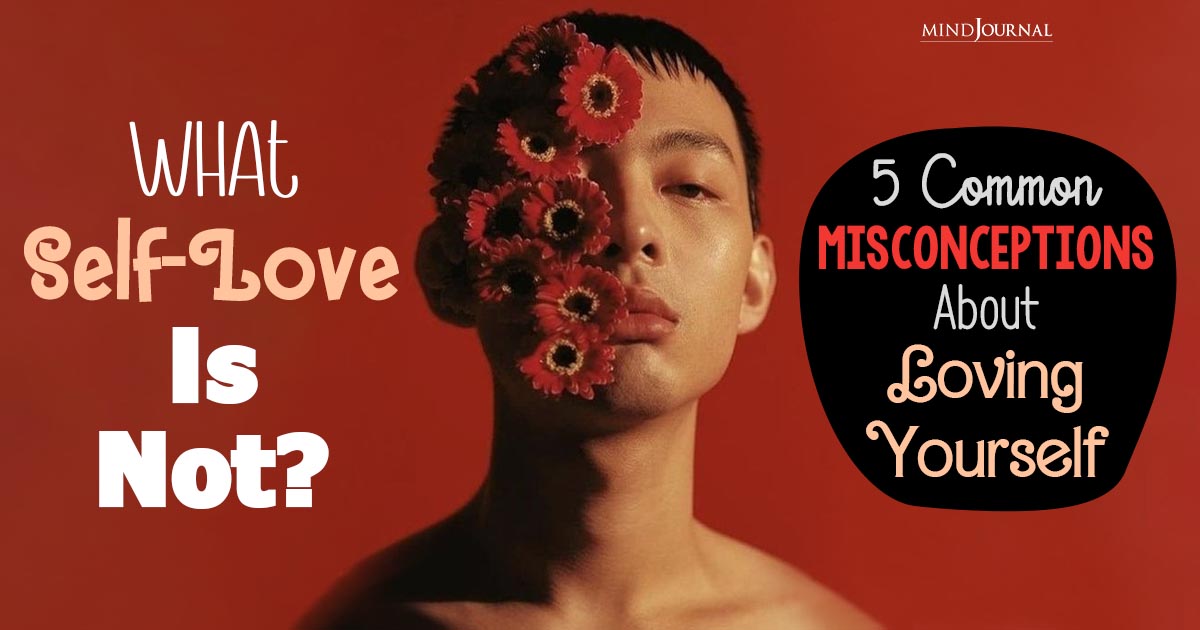Most often people associate setting boundaries with being mean and unresponsive to others. Well, there is a difference between setting boundaries and shutting people out. Resentment arises when people don’t think and operate in the same way. A boundary shouldn’t hurt people as it’s completely up to how they take it.
How can we honor our own needs while also being responsive to others?
We know it’s important to create good personal boundaries in our life. But setting boundaries that support us rather than constrain us is a skill that requires continual refinement.
If someone is mistreating or shaming us, we need to care for ourselves by responding in a self-supportive way. Boundaries mean we can say what’s not OK; we can define our space and protect our well-being and integrity.
Creating boundaries are a way to regulate how we respond to others. If someone asks for a favor like a ride to the airport, we have the right to say “yes” or “no” or “let me think about that.” Our caring toward others prompts us to take their request seriously.
Our caring toward ourselves prompts us to carefully consider our own well-being. Rather than react in a knee-jerk manner, we can weigh our own needs while considering theirs. Doing so in a kind and authentic way can build trust and deepen connections.
Some people pride themselves on having strong boundaries, but they might actually have rigid ones. Wearing their boundaries on their sleeve, they are quick to say “no” and slow to say “yes.” They have difficulty with “maybe,” because this requires the inner strength to embrace ambiguity and uncertainty. Boundaries can become a defensive shield that keeps people away.
Read: Personal Boundaries: 9 Core Boundaries To Live By
Healthy boundaries require flexibility—a capacity to pause and consider what we really want, as well as how we’re affecting others. This requires a pliable mind and heart.

I’ve observed that people who set boundaries in a seemingly strong way may actually feel uncertain about their right to set limits. They are so afraid of losing themselves or ignoring their own needs that they quickly send a “no” message because they’re not really sure about their right to say “no.”
When we’re uncertain about our rights and needs, we may either ignore them, which leaves us feeling resentful or depressed (or both), or assert them aggressively.
Here’re 2 ways to set healthy boundaries for you to know where to draw the line
1. Pausing Before Speaking
As we become more relaxed about our right to set limits, we won’t be so quick to slam the door in someone’s face. The more confident we become in our capacity to take care of ourselves, the more we can pause and consider another person’s request without immediately feeling obligated to respond positively.
We may feel compelled to respond automatically to a person’s request because we fear losing their love or friendship. Or perhaps saying “no,” even if said gently, conflicts with our self-image of being a caring person. Setting boundaries doesn’t mean we don’t care about people.
Healthy, flexible boundaries require inner strength, wisdom, and compassion to balance others’ needs with our own. We can set limits with kindness rather than with a harsh or irritable tone in our voice or demeanor.
An angry response is sometimes appropriate, such as when there has been abuse, injustice, or a serious violation of our boundaries. But anger is often a secondary emotion that covers up vulnerable feelings, such as fear, hurt, and shame.
Read: How to Overcome Reactive Anger and Frustration
2. Setting Boundaries With Sensitivity

Healthy boundaries mean considering how our response affects others. When our fear or shame gets triggered, such as when we know we’re disappointing someone, we might shut down emotionally or wrap ourselves in a self-protective blanket of prickly anger.
John Gottman, who researched what makes marriages succeed or fail, writes that intimate relationships invite us to be affected by each other. “Accepting influence” helps relationships thrive. This doesn’t mean complying with another’s needs without considering our own.
It means letting in another person and being affected by them. This means expanding our tolerance for ambiguity and complexity. It means having compassion for our own limits while keeping our hearts open.
Being present and sensitive toward others while remaining sensitive to ourselves takes mindful inner work. In our ongoing process of personal growth, we check in with ourselves while also staying connected with others. This ability to move toward others while staying connected to ourselves is, after all, is a large part of what healthy relationships are all about.
Wondering how to set boundaries for yourself without disappointing others? Here are some tips that might help you in creating personal boundaries.
References www.gottman.com/blog/manage-conflict-accepting-influence/
Written By: John Amodeo, Ph.D., MFT Originally Appeared On: Psychology Today
Frequently Asked Questions (FAQs):
How to set boundaries without being mean?
Setting boundaries tell others how you want to be treated and it might offend other people. Commination can reduce the likelihood of you being perceived as mean. Pause before speaking and set boundaries with sensitivity.
What does it mean to set boundaries?
Setting boundaries are about what you value and want in your life. It’s creating a line that defines what is acceptable for you and what’s not.
What boundaries should a man have?
Men, like every other people on this planet, should have boundaries. The most important boundaries a man should have are about being kind to himself and being able to say ‘no’ to others.
What do you do when someone disrespects your boundaries?
How you approach your boundaries is in your hands, you’re in charge. Be very clear with yourself about what your limitations are and what you should allow. Have proper communication about your boundaries and cut off the contacts if they repeatedly violate those boundaries.










Leave a Reply